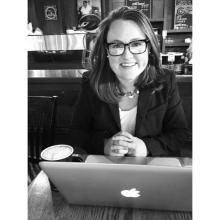Evangelicals seek to transform their collective community, especially when they feel as though their way of life is threatened. This desire for change is especially clear when we return to the issues that brought evangelicals into public and political life in the first place: questions of gender, sexuality, and the white family. I use two years of ethnographic fieldwork to argue that the church grapples with changes in understandings of gender and sexuality against the backdrop of what I call an imagined secular world. The imagined secular is a world full of non-religious individuals who push for access to abortion, trans rights, gay rights, deviant sex, and marriages void of God. As the evangelical church finds itself in flux, it is constructing its own identity in relation to a perceived outside identity: that of the non-religious, secular, outsider. This identity work occurs within a space that carries with it much larger meanings indicative of societal cultural debates and the institutional and political work that shapes a nation. This work highlights how evangelicals grapple with the “messiness” that comes with questions of sexism and feminism, the ways in which evangelicals reconcile historical white nationalist tendencies with the need to now reach across racial lines, and how evangelicals retain a privileged position around reinforcements of a heterosexual Christian family while jettisoning some of its former associations with homophobia. The varied ways in which evangelicals debate their beliefs during these times of change lends insight their continued support for conservative politics. I argue that Donald Trump works as a symbol who will hold the imagined secular world at bay while evangelicals actively discuss and debate ways in which they can rework some of their beliefs and approaches to maintain cultural relevance during a period in time in which they feel as though they are quickly losing cultural sway.
Evangelical Sexual Politics in Trump’s America
Diefendorf, Sarah. 2018. "Evangelical Sexual Politics in Trump’s America." Ph.D. Dissertation, Department of Sociology, University of Washington.
Committee
Sarah L. Quinn (Chair), Shirley J. Yee (GSR), Julie E. Brines, Judith A Howard, CJ Pascoe (University of Oregon, Department of Sociology).
